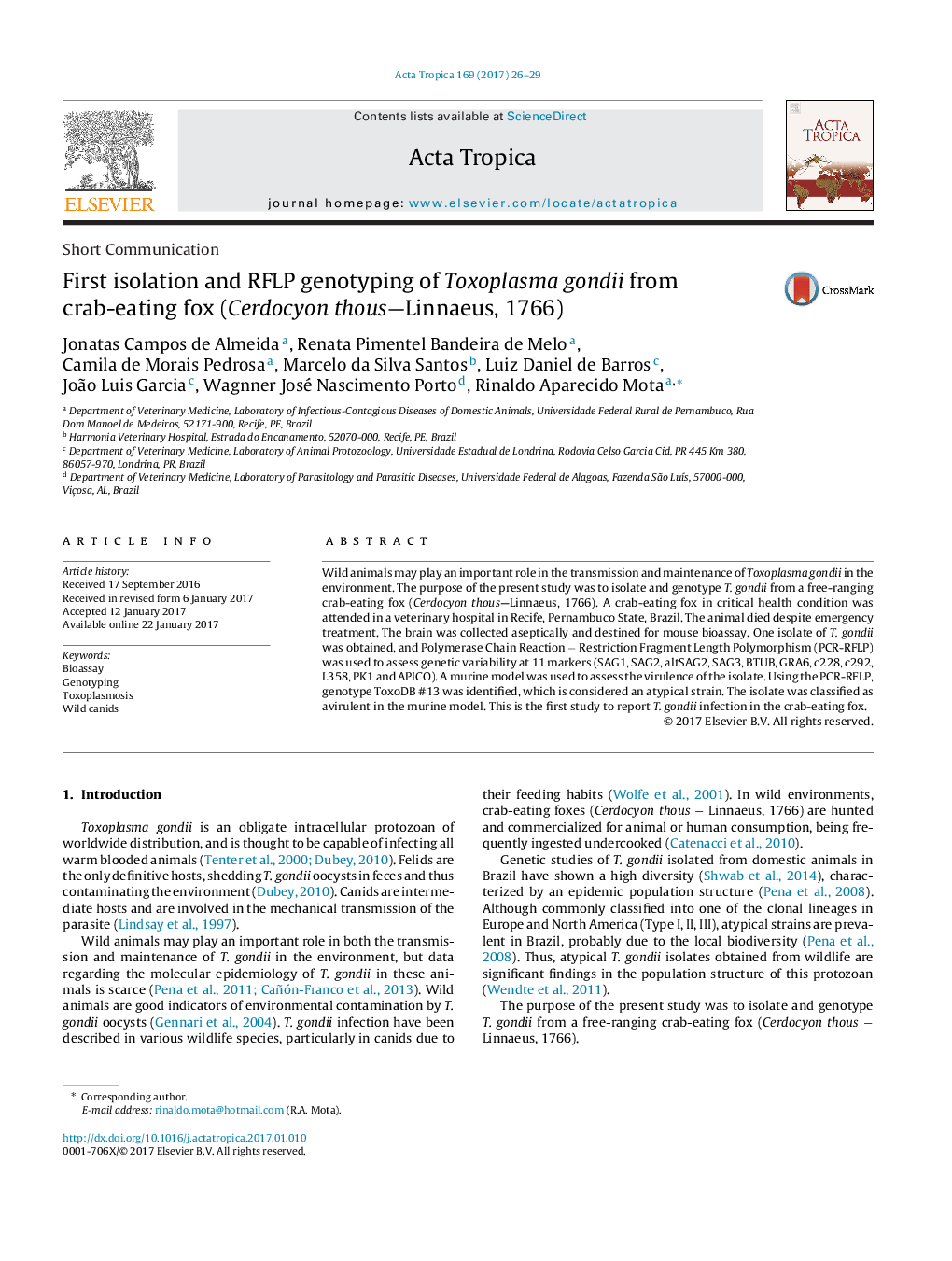| Article ID | Journal | Published Year | Pages | File Type |
|---|---|---|---|---|
| 5670870 | Acta Tropica | 2017 | 4 Pages |
â¢First report of T.gondii isolation in crab-eating fox (Cerdocyon thous).â¢RFLP-genotyping revealed an atypical genotype (Toxo DB #13).â¢Virulence assay in murine model showed an avirulent T. gondii strain.
Wild animals may play an important role in the transmission and maintenance of Toxoplasma gondii in the environment. The purpose of the present study was to isolate and genotype T. gondii from a free-ranging crab-eating fox (Cerdocyon thous-Linnaeus, 1766). A crab-eating fox in critical health condition was attended in a veterinary hospital in Recife, Pernambuco State, Brazil. The animal died despite emergency treatment. The brain was collected aseptically and destined for mouse bioassay. One isolate of T. gondii was obtained, and Polymerase Chain Reaction â Restriction Fragment Length Polymorphism (PCR-RFLP) was used to assess genetic variability at 11 markers (SAG1, SAG2, altSAG2, SAG3, BTUB, GRA6, c228, c292, L358, PK1 and APICO). A murine model was used to assess the virulence of the isolate. Using the PCR-RFLP, genotype ToxoDB #13 was identified, which is considered an atypical strain. The isolate was classified as avirulent in the murine model. This is the first study to report T. gondii infection in the crab-eating fox.
